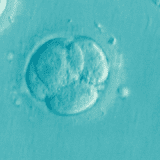The process of conception and fertility is a complex and intricate journey that involves the interplay of various hormones in the body. Hormones play a crucial role in regulating the reproductive system and ensuring its proper functioning. Understanding the role of hormones in conception is essential for couples trying to conceive and for those seeking assisted reproductive technologies.
Throughout the menstrual cycle, the levels of different hormones fluctuate, orchestrating the processes of ovulation, implantation, and the preparation of the uterus for pregnancy. In women, estrogen, progesterone, and luteinizing hormone are the key players in the reproductive hormone orchestra.
Estrogen, often referred to as the “female hormone,” is responsible for the development and maturation of the eggs in the ovaries. As the menstrual cycle progresses, estrogen levels rise, stimulating the growth of the uterine lining in preparation for potential pregnancy. This hormone also plays a crucial role in triggering ovulation, the release of a mature egg from the ovary.
Progesterone, also known as the “pregnancy hormone,” takes the spotlight after ovulation. If fertilization occurs, progesterone helps prepare the uterine lining for implantation of the fertilized egg. It supports the growth of blood vessels and glands in the uterus, creating a nurturing environment for the developing embryo.
Luteinizing hormone (LH) has a pivotal role in the process of ovulation. It surges midway through the menstrual cycle, triggering the release of the mature egg from the ovary. This surge in LH is a crucial indicator of the fertile window, the period when conception is most likely to occur.
While these hormones primarily affect female fertility, male reproductive hormones also play a significant role in the conception process. Testosterone, the primary male sex hormone, is essential for the production and maturation of sperm cells. It is responsible for maintaining sperm count, motility, and overall quality.
Follicle-stimulating hormone (FSH) is another hormone that plays a crucial role in male fertility. It stimulates the growth and development of sperm cells within the testes. Without adequate levels of FSH, sperm production may be impaired, leading to fertility issues.
Hormonal imbalances can have a profound impact on fertility and the ability to conceive. Conditions such as polycystic ovary syndrome (PCOS) and endometriosis can disrupt the delicate balance of hormones in the body, affecting ovulation and the overall fertility of women. Thyroid disorders can also disrupt reproductive health in both men and women, as thyroid hormones are closely linked to fertility.
Assisted reproductive technologies (ART) have revolutionized the field of fertility treatment. Hormonal therapies are commonly used in ART procedures such as in vitro fertilization (IVF), ovulation induction, and intrauterine insemination (IUI). These therapies aim to optimize hormonal levels and stimulate the reproductive system to increase the chances of successful conception.
Stress, a common factor in modern life, can have a significant impact on hormonal balance and fertility. Chronic stress can disrupt the hypothalamic-pituitary-adrenal (HPA) axis, leading to irregularities in the menstrual cycle and ovulation in women. In men, stress can affect testosterone levels and sperm production, potentially causing fertility issues.
As individuals age, hormonal changes occur that can affect fertility. Menopause in women is characterized by a decline in hormone levels, particularly estrogen and progesterone, leading to the cessation of menstrual cycles and the end of reproductive capacity. In men, aging is associated with a gradual decline in testosterone levels, which can affect sperm quality and fertility.
Environmental factors can also disrupt hormonal balance and fertility. Exposure to endocrine-disrupting chemicals (EDCs) can interfere with hormone production and have potential effects on fertility. Dietary choices and obesity can also influence hormone levels and impact fertility outcomes.
Understanding the role of hormones in conception is crucial for individuals and couples navigating the journey of fertility. By recognizing the influence of hormones and addressing any imbalances or disruptions, individuals can optimize their chances of successful conception and parenthood.
Female Reproductive Hormones
Female reproductive hormones play a crucial role in the process of conception and fertility. Estrogen, progesterone, and luteinizing hormone are three key hormones that regulate various aspects of the female reproductive system.
Estrogen: Estrogen is primarily responsible for the development and maturation of the eggs in the ovaries. It also plays a vital role in the thickening of the uterine lining, preparing it for potential implantation of a fertilized egg. Estrogen levels fluctuate throughout the menstrual cycle, with a peak just before ovulation.
Progesterone: Progesterone is crucial for the second half of the menstrual cycle, known as the luteal phase. It helps maintain the thickened uterine lining and prepares it for implantation. If fertilization occurs, progesterone levels remain high to support the early stages of pregnancy. However, if fertilization does not occur, progesterone levels drop, triggering the shedding of the uterine lining during menstruation.
Luteinizing Hormone (LH): LH plays a pivotal role in triggering ovulation. It stimulates the release of a mature egg from the ovary, making it available for fertilization. LH levels surge just before ovulation, indicating the most fertile period of the menstrual cycle.
These hormones work together in a delicate balance to regulate the menstrual cycle and facilitate conception. Understanding their roles and how they interact can provide valuable insights into female fertility and help individuals make informed decisions regarding family planning and reproductive health.
Estrogen and Ovulation
Estrogen and Ovulation
Estrogen plays a crucial role in the menstrual cycle and has a significant impact on ovulation. During the menstrual cycle, estrogen levels fluctuate, reaching their peak just before ovulation occurs. This surge in estrogen stimulates the release of luteinizing hormone (LH), which triggers the release of a mature egg from the ovary.
Estrogen is responsible for the growth and development of the uterine lining, known as the endometrium. As estrogen levels rise, the endometrium thickens, preparing itself for the potential implantation of a fertilized egg. This thickening is essential for successful implantation and the establishment of pregnancy.
In addition to its role in preparing the uterus for implantation, estrogen also influences cervical mucus production. As estrogen levels increase, cervical mucus becomes thin and slippery, creating a more hospitable environment for sperm to swim through and reach the egg.
Overall, estrogen plays a vital role in regulating the menstrual cycle and preparing the reproductive system for conception. Understanding the fluctuations in estrogen levels and their impact on ovulation can help individuals trying to conceive optimize their chances of successful pregnancy.
Progesterone and Implantation
Progesterone plays a crucial role in preparing the uterus for the implantation of a fertilized egg. It is a hormone produced by the ovaries after ovulation occurs. Once the egg is released from the ovary, the empty follicle that contained the egg transforms into a structure called the corpus luteum. The corpus luteum then produces progesterone.
Progesterone helps to thicken the lining of the uterus, known as the endometrium, making it more receptive to the implantation of a fertilized egg. This thickening of the endometrium is essential for providing a nourishing environment for the developing embryo.
In addition to preparing the uterus for implantation, progesterone also helps to maintain the pregnancy by preventing the shedding of the uterine lining. It supports the growth and development of the placenta, which is responsible for supplying nutrients and oxygen to the developing fetus.
During the early stages of pregnancy, progesterone levels continue to rise, ensuring the proper development of the uterine lining and supporting the growth of the embryo. If fertilization does not occur, progesterone levels decline, leading to the shedding of the uterine lining and the onset of menstruation.
Overall, progesterone plays a vital role in the process of implantation and early pregnancy. Without sufficient levels of progesterone, the uterus may not be adequately prepared for the implantation of a fertilized egg, making conception and pregnancy more challenging.
Luteinizing Hormone and Ovulation
Luteinizing Hormone and Ovulation
Ovulation is a crucial process in the female reproductive system that involves the release of a mature egg from the ovary. This process is triggered by a surge of luteinizing hormone (LH) in the body. Understanding the role of LH in ovulation is essential for couples trying to conceive and for individuals looking to better understand their menstrual cycle.
LH is produced by the pituitary gland, a small gland located at the base of the brain. Throughout the menstrual cycle, LH levels remain relatively low, but they dramatically increase around the time of ovulation. This surge in LH is responsible for stimulating the release of the egg from the ovary, making it available for fertilization.
The surge of LH typically occurs around the middle of the menstrual cycle, approximately 24 to 36 hours before ovulation. This surge can be detected through various methods, including urine tests that measure LH levels. By tracking the LH surge, individuals can pinpoint their most fertile days and increase their chances of conception.
During the surge of LH, the egg is released from the ovary and travels through the fallopian tube, where it can be fertilized by sperm. If fertilization occurs, the fertilized egg implants itself into the lining of the uterus and pregnancy begins. If fertilization does not occur, the egg disintegrates, and the menstrual cycle continues.
It is important to note that the surge of LH can vary from person to person and from cycle to cycle. Factors such as stress, illness, and certain medications can affect the timing and intensity of the LH surge. Therefore, it is recommended to track LH levels consistently over several cycles to identify patterns and optimize the chances of conception.
In conclusion, understanding the surge of luteinizing hormone is crucial for understanding the process of ovulation. By tracking LH levels and identifying the surge, individuals can determine their most fertile days and increase their chances of conceiving. Consulting with a healthcare professional or fertility specialist can provide further guidance and support in optimizing fertility.
Male Reproductive Hormones
When it comes to male fertility, testosterone and follicle-stimulating hormone (FSH) play crucial roles in the reproductive process. Testosterone, often referred to as the “male hormone,” is responsible for the development and maturation of sperm cells. It is produced in the testes and helps regulate sperm production, as well as other male characteristics such as muscle mass and libido.
On the other hand, FSH is a hormone that stimulates the growth and development of sperm cells in the testes. It works in conjunction with testosterone to ensure the proper production and maturation of sperm. FSH levels in the blood are regulated by a negative feedback loop, meaning that when sperm production is low, the body releases more FSH to stimulate the testes to produce more sperm.
Both testosterone and FSH are essential for male fertility. Any disruptions in their levels can have a significant impact on sperm production and quality, leading to fertility problems. Imbalances in testosterone levels, for example, can result in reduced sperm count, decreased motility, and abnormal morphology. Similarly, abnormalities in FSH levels can interfere with the growth and development of sperm cells, affecting fertility.
To assess male fertility, doctors often measure the levels of testosterone and FSH in the blood. If any imbalances are detected, further investigations may be conducted to identify the underlying cause and determine appropriate treatment options. Hormonal therapies, such as testosterone replacement therapy or medications to stimulate FSH production, may be prescribed to address hormonal imbalances and improve male fertility.
Testosterone and Sperm Production
Testosterone plays a crucial role in the production and maturation of sperm cells. It is the primary male sex hormone, responsible for the development of male reproductive organs and secondary sexual characteristics. In the context of sperm production, testosterone is essential for the initiation and maintenance of spermatogenesis, the process by which sperm cells are produced.
During puberty, testosterone levels increase, triggering the development of testes and the production of sperm cells. Testosterone stimulates the seminiferous tubules in the testes, where spermatogenesis takes place. It promotes the division and differentiation of germ cells, which eventually develop into mature sperm cells.
Furthermore, testosterone is necessary for the maturation of sperm cells. It influences the development of the flagella, the tail-like structure that enables sperm motility. Testosterone also affects the production of seminal fluid, which provides nutrients and support for sperm cells during ejaculation.
In addition to its role in sperm production, testosterone is involved in maintaining male sexual function and libido. It contributes to the development of male secondary sexual characteristics, such as facial and body hair growth, deepening of the voice, and muscle mass development.
It is important to note that testosterone levels can be influenced by various factors, including age, overall health, and lifestyle choices. Low testosterone levels can negatively impact sperm production and fertility. In such cases, hormone replacement therapy or other medical interventions may be recommended to restore testosterone levels and improve sperm production.
Follicle-Stimulating Hormone and Sperm Development
Follicle-Stimulating Hormone and Sperm Development
Follicle-stimulating hormone (FSH) plays a crucial role in the growth and development of sperm cells in men. Produced by the pituitary gland, FSH stimulates the production of testosterone in the testicles, which is essential for the maturation of sperm.
When FSH is released into the bloodstream, it travels to the testicles and binds to receptors on the cells called Sertoli cells. These cells are responsible for supporting the developing sperm cells and providing them with the necessary nutrients and environment for growth.
Under the influence of FSH, the Sertoli cells facilitate the process of spermatogenesis, where immature sperm cells undergo a series of divisions and transformations to become mature, functional sperm cells. FSH promotes the growth and maturation of these cells, ensuring that they acquire the ability to swim and fertilize an egg.
Additionally, FSH also stimulates the production of another hormone called inhibin, which acts as a feedback mechanism to regulate FSH levels. Inhibin inhibits the release of FSH when the sperm count reaches optimal levels, preventing excessive sperm production.
In summary, follicle-stimulating hormone is essential for the growth and development of sperm cells. By stimulating testosterone production and supporting the maturation process, FSH ensures the production of healthy and functional sperm, which is crucial for male fertility.
Hormonal Imbalances and Conception
Hormonal imbalances can have a significant impact on fertility and the ability to conceive. The delicate balance of hormones in the body plays a crucial role in regulating the reproductive system and ensuring successful conception. When this balance is disrupted, it can lead to difficulties in getting pregnant.
One common hormonal imbalance that affects fertility is Polycystic Ovary Syndrome (PCOS). This condition is characterized by higher than normal levels of androgens, such as testosterone, in women. These elevated androgen levels can interfere with ovulation, making it more challenging to conceive. Additionally, PCOS can cause irregular menstrual cycles, further complicating the process of conception.
Another condition that can disrupt hormonal balance and hinder conception is endometriosis. This condition occurs when the tissue that normally lines the uterus grows outside of it. Endometriosis can lead to hormonal disruptions, inflammation, and the formation of scar tissue, all of which can negatively impact fertility. The hormonal imbalances caused by endometriosis can interfere with ovulation and the implantation of a fertilized egg.
Thyroid disorders are also known to affect reproductive health in both men and women. The thyroid gland produces hormones that regulate metabolism, growth, and development. When thyroid function is impaired, it can disrupt the delicate balance of reproductive hormones, leading to difficulties in conceiving. Hypothyroidism, or an underactive thyroid, can cause irregular menstrual cycles and decrease fertility in women. In men, thyroid disorders can affect sperm production and quality.
Addressing hormonal imbalances is crucial for improving fertility and increasing the chances of conception. Seeking medical advice and treatment from a healthcare professional specializing in reproductive endocrinology can help identify and manage hormonal imbalances. Hormonal therapies, such as medications to regulate hormone levels, may be recommended to restore balance and enhance fertility.
In conclusion, hormonal imbalances can significantly impact fertility and the ability to conceive. Conditions like PCOS, endometriosis, and thyroid disorders can disrupt the delicate balance of reproductive hormones, making it more challenging to get pregnant. Seeking appropriate medical care and treatment can help address these imbalances and improve fertility outcomes.
Polycystic Ovary Syndrome (PCOS)
Polycystic Ovary Syndrome (PCOS) is a common hormonal disorder that affects women of reproductive age. It is characterized by the presence of multiple cysts on the ovaries, irregular menstrual cycles, and elevated levels of androgens, the male hormones. PCOS can have a significant impact on hormone levels, leading to imbalances that can affect fertility.
One of the key features of PCOS is an increase in the production of androgens, such as testosterone. This hormonal imbalance can disrupt the normal ovulation process, leading to irregular or absent periods. Without regular ovulation, the chances of conceiving naturally are significantly reduced. Additionally, the elevated levels of androgens can interfere with the development and release of mature eggs from the ovaries.
Furthermore, PCOS is associated with insulin resistance, a condition in which the body’s cells do not respond properly to insulin. This can lead to high levels of insulin in the blood, which in turn stimulates the ovaries to produce more androgens. The excess androgens can further disrupt the hormonal balance and interfere with the ovulation process.
Aside from the impact on hormone levels, PCOS can also affect fertility through other mechanisms. The presence of cysts on the ovaries can interfere with the release of mature eggs, making it more difficult for fertilization to occur. Additionally, the thickened lining of the uterus that can result from hormonal imbalances in PCOS can make it difficult for a fertilized egg to implant and develop properly.
Treatment options for PCOS aim to address the underlying hormonal imbalances and improve fertility. This may involve lifestyle changes, such as adopting a healthy diet and engaging in regular exercise to manage insulin resistance and promote weight loss. Hormonal medications, such as oral contraceptives or fertility drugs, may also be prescribed to regulate menstrual cycles and induce ovulation.
In conclusion, PCOS can have a significant impact on hormone levels, leading to imbalances that can affect fertility. Understanding the role of PCOS in hormone regulation and its effects on fertility is crucial for individuals with this condition who are trying to conceive. Seeking medical advice and exploring appropriate treatment options can help manage the hormonal imbalances associated with PCOS and improve the chances of successful conception.
Endometriosis and Hormonal Disruptions
Endometriosis is a condition that affects the reproductive health of women and can have a significant impact on hormonal balance and conception. This condition occurs when the tissue that normally lines the uterus, called the endometrium, grows outside of the uterus. These abnormal growths, known as endometrial implants, can be found on the ovaries, fallopian tubes, and other organs in the pelvic area.
One of the key ways endometriosis disrupts hormonal balance is through the production of excess estrogen. Estrogen is a hormone that plays a crucial role in regulating the menstrual cycle and preparing the uterus for pregnancy. In women with endometriosis, the endometrial implants produce additional estrogen, leading to higher levels of this hormone in the body. This hormonal imbalance can interfere with the normal process of ovulation and make it more difficult for a fertilized egg to implant in the uterus.
In addition to the excess estrogen, endometriosis can also cause hormonal disruptions through the formation of scar tissue. As the endometrial implants grow and spread, they can cause inflammation and the development of scar tissue in the pelvic area. This scar tissue can affect the function of the ovaries and fallopian tubes, leading to further hormonal imbalances and hindering conception.
Furthermore, endometriosis can impact the production and release of other reproductive hormones, such as progesterone. Progesterone is essential for maintaining a healthy pregnancy as it helps to support the growth of the uterine lining and prepare the body for implantation. In women with endometriosis, the hormonal disruptions caused by the condition can interfere with the normal production and release of progesterone, making it more challenging for a fertilized egg to successfully implant and develop.
Overall, endometriosis can have a profound effect on hormonal balance, making it more difficult for women to conceive. The excess estrogen, scar tissue formation, and disruptions in the production of other reproductive hormones all contribute to the challenges faced by women with endometriosis when trying to achieve pregnancy. It is important for individuals with endometriosis to seek medical guidance and explore potential treatment options to manage the condition and improve their chances of conception.
Thyroid Disorders and Fertility
Thyroid Disorders and Fertility
Thyroid hormones play a crucial role in maintaining reproductive health in both men and women. The thyroid gland, located in the neck, produces hormones that regulate metabolism and various bodily functions. When there is an imbalance in thyroid hormone levels, it can have a significant impact on fertility.
In women, thyroid disorders can disrupt the menstrual cycle and ovulation. Hypothyroidism, or an underactive thyroid, can lead to irregular periods and anovulation, where the ovaries do not release eggs regularly. On the other hand, hyperthyroidism, or an overactive thyroid, can cause shorter menstrual cycles and increased frequency of ovulation, which may lead to difficulties in conceiving.
Thyroid disorders can also affect the quality of eggs and the development of the uterine lining, making it more challenging for a fertilized egg to implant and establish a pregnancy. Additionally, thyroid dysfunction during pregnancy can increase the risk of complications, such as miscarriage, preterm birth, and developmental issues in the baby.
In men, thyroid disorders can impact sperm production and quality. Hypothyroidism can lead to reduced sperm count, motility, and morphology, making it more difficult to achieve pregnancy. Hyperthyroidism, on the other hand, can cause an increase in sperm production but may lead to abnormalities in sperm function.
It is essential for individuals experiencing fertility issues to have their thyroid hormone levels checked. If a thyroid disorder is detected, appropriate medical intervention and treatment can help restore hormonal balance and improve fertility outcomes.
Assisted Reproductive Technologies (ART)
Assisted Reproductive Technologies (ART) have revolutionized the field of fertility treatment, offering hope to couples struggling to conceive naturally. These advanced medical procedures utilize hormonal therapies to enhance the chances of successful conception. Let’s delve into how hormonal therapies play a crucial role in assisted reproductive technologies.
One of the most well-known ART procedures is In Vitro Fertilization (IVF). In IVF, hormonal medications are administered to stimulate the ovaries and encourage the production of multiple eggs. This is crucial because the more eggs that can be retrieved, the higher the chances of successful fertilization. These medications typically contain synthetic versions of the hormones that naturally regulate the menstrual cycle, such as follicle-stimulating hormone (FSH) and luteinizing hormone (LH).
Another hormonal therapy used in ART is ovulation induction. This procedure is particularly beneficial for women with irregular menstrual cycles or anovulation (lack of ovulation). By using hormonal medications, ovulation can be stimulated, increasing the chances of successful fertilization and pregnancy. These medications may include clomiphene citrate or gonadotropins, which help regulate the release of eggs from the ovaries.
Intrauterine Insemination (IUI) is another ART procedure that utilizes hormonal medications. In this procedure, the male partner’s sperm is directly inserted into the woman’s uterus, increasing the chances of fertilization. Prior to the insemination, hormonal medications may be prescribed to enhance the quality of the woman’s cervical mucus, making it easier for the sperm to reach the fallopian tubes and fertilize the egg.
In conclusion, assisted reproductive technologies rely heavily on hormonal therapies to optimize the chances of successful conception. Whether it’s stimulating egg production in IVF, inducing ovulation in women with irregular cycles, or enhancing cervical mucus in IUI, these hormonal treatments play a crucial role in overcoming fertility challenges and helping couples achieve their dream of parenthood.
In Vitro Fertilization (IVF)
In vitro fertilization (IVF) is a widely used assisted reproductive technology that helps couples struggling with infertility to conceive a child. One of the key components of IVF is the use of hormonal medications to stimulate egg production in the ovaries. These medications play a crucial role in the success of the IVF procedure by increasing the chances of retrieving multiple mature eggs for fertilization.
During a typical IVF cycle, a woman will undergo a series of hormone injections that stimulate her ovaries to produce multiple follicles, which contain the eggs. This process is known as ovarian stimulation. The hormonal medications used in IVF include follicle-stimulating hormone (FSH) and luteinizing hormone (LH) analogues. These medications help to regulate the growth and maturation of the eggs.
Once the eggs have reached the desired size and maturity, a trigger shot of human chorionic gonadotropin (hCG) is administered to trigger ovulation. This ensures that the eggs are released from the follicles and can be retrieved for fertilization. The eggs are then retrieved through a minor surgical procedure called egg retrieval.
After the eggs are retrieved, they are fertilized with sperm in a laboratory dish. The resulting embryos are monitored and cultured for a few days before being transferred back into the woman’s uterus. The goal is for one or more of the embryos to implant in the uterine lining and result in a successful pregnancy.
Overall, the role of hormonal medications in IVF is crucial as they help to stimulate the production of multiple eggs, increase the chances of successful fertilization, and ultimately improve the chances of achieving pregnancy. The dosage and timing of these medications are carefully monitored and adjusted based on individual patient needs to optimize the chances of success.
Ovulation Induction
Ovulation induction is a method used to stimulate ovulation in women with irregular menstrual cycles. It involves the use of hormonal treatments to regulate the release of eggs from the ovaries. This technique is commonly employed in cases where a woman is having difficulty conceiving due to irregular or absent ovulation.
There are various hormonal medications that can be used for ovulation induction. One commonly prescribed medication is clomiphene citrate, which is taken orally. Clomiphene citrate works by blocking the action of estrogen receptors in the brain, which in turn stimulates the release of follicle-stimulating hormone (FSH) and luteinizing hormone (LH). These hormones are essential for the development and release of eggs from the ovaries.
In addition to clomiphene citrate, other medications such as gonadotropins may be used for ovulation induction. Gonadotropins are injectable hormones that directly stimulate the ovaries to produce multiple follicles, each containing an egg. This can increase the chances of successful ovulation and conception.
Monitoring is an important aspect of ovulation induction. Ultrasound scans and blood tests are used to track the growth and development of follicles in the ovaries. Once the follicles reach an optimal size, a trigger shot of human chorionic gonadotropin (hCG) is administered to induce ovulation. This ensures that the eggs are released at the right time for fertilization.
Ovulation induction can greatly improve the chances of conception for women with irregular cycles. By regulating ovulation, it helps to ensure that there is a viable egg available for fertilization. However, it is important to note that ovulation induction should be done under the guidance of a fertility specialist, as it requires careful monitoring and management of hormone levels.
Intrauterine Insemination (IUI)
Intrauterine Insemination (IUI)
Intrauterine insemination (IUI) is a fertility treatment that involves the placement of sperm directly into the uterus to increase the chances of successful conception. This procedure is often recommended for couples who are experiencing difficulties in achieving pregnancy naturally. One of the key components of IUI is the use of hormonal medications to enhance the chances of success.
The Role of Hormonal Medications
Hormonal medications play a crucial role in the IUI process by stimulating the ovaries to produce multiple mature eggs. This is important because it increases the chances of fertilization occurring when the sperm is introduced into the uterus. The medications used in IUI are typically a combination of follicle-stimulating hormone (FSH) and luteinizing hormone (LH) or medications that mimic their effects.
Stimulating Egg Production
The first step in an IUI cycle involves the administration of hormonal medications to stimulate the ovaries to produce multiple eggs. This is typically done through daily injections of FSH, which helps to promote the growth and development of the ovarian follicles. The follicles contain the eggs and it is important to have multiple mature follicles to increase the chances of successful fertilization.
Monitoring and Timing
Throughout the IUI cycle, the woman’s hormone levels and follicle development are closely monitored through blood tests and ultrasound examinations. This allows the healthcare provider to determine the optimal timing for the insemination procedure. Once the follicles have reached the desired size, a trigger shot of human chorionic gonadotropin (hCG) is administered to trigger ovulation.
The Insemination Procedure
On the day of the insemination, the male partner provides a semen sample, which is then prepared in the laboratory. The prepared sperm is concentrated and washed to remove any impurities or non-motile sperm. The sperm is then carefully placed into the woman’s uterus using a thin catheter. This process bypasses the cervix and increases the chances of the sperm reaching the fallopian tubes where fertilization can occur.
Enhancing the Chances of Success
The use of hormonal medications in IUI helps to enhance the chances of successful conception by increasing the number of mature eggs available for fertilization. It also ensures that the timing of the insemination is optimal, increasing the likelihood of the sperm and egg meeting in the fallopian tubes. However, it is important to note that the success of IUI can vary depending on various factors, including the age and overall health of the individuals involved.
Conclusion
Intrauterine insemination (IUI) is a fertility treatment that involves the use of hormonal medications to enhance the chances of successful conception. By stimulating the ovaries to produce multiple mature eggs, IUI increases the likelihood of fertilization occurring when the sperm is introduced into the uterus. The use of hormonal medications, along with careful monitoring and timing, plays a crucial role in optimizing the success of IUI procedures. However, it is important to consult with a healthcare provider to determine if IUI is the right option for you and to discuss any potential risks or side effects associated with the treatment.
Impact of Stress on Hormones and Fertility
Stress is a common and unavoidable part of life, but its impact on hormonal balance and fertility should not be underestimated. When we experience stress, our bodies release a hormone called cortisol, which is produced by the adrenal glands as part of the body’s natural response to stress. However, chronic or prolonged stress can disrupt the delicate balance of hormones involved in the reproductive system, leading to fertility problems.
The hypothalamic-pituitary-adrenal (HPA) axis, which plays a crucial role in regulating the release of reproductive hormones, is particularly affected by stress. When the body is under stress, the HPA axis releases cortisol, which can interfere with the normal production and regulation of reproductive hormones such as estrogen and progesterone in women, and testosterone in men.
In women, chronic stress can lead to menstrual irregularities, including missed or irregular periods, and even anovulation (lack of ovulation). This can make it more difficult to conceive, as ovulation is necessary for fertilization to occur. Stress can also affect the quality of cervical mucus, making it more difficult for sperm to reach and fertilize an egg.
For men, stress can have a negative impact on testosterone production, which is essential for sperm production. High levels of cortisol can inhibit the production of testosterone, leading to decreased sperm count and motility. This can reduce the chances of successful fertilization and conception.
In addition to directly affecting reproductive hormones, stress can also indirectly impact fertility by influencing lifestyle factors. When under stress, individuals may be more likely to engage in unhealthy behaviors such as smoking, excessive alcohol consumption, and poor dietary choices. These factors can further disrupt hormonal balance and fertility.
It is important for individuals who are trying to conceive to manage and reduce stress levels. This can be achieved through various stress-reducing techniques such as exercise, meditation, mindfulness, and seeking support from loved ones or professional counselors. By effectively managing stress, individuals can help maintain hormonal balance and increase their chances of successful conception.
The Hypothalamic-Pituitary-Adrenal (HPA) Axis
The Hypothalamic-Pituitary-Adrenal (HPA) Axis plays a crucial role in the intricate relationship between stress and reproductive hormones. This axis is responsible for regulating the release of hormones that are essential for fertility and conception. Let’s delve deeper into how stress signals can impact the functioning of this axis and subsequently affect reproductive hormones.
The HPA Axis involves three key components: the hypothalamus, the pituitary gland, and the adrenal glands. When the body experiences stress, the hypothalamus releases a hormone called corticotropin-releasing hormone (CRH). This hormone then signals the pituitary gland to release adrenocorticotropic hormone (ACTH). ACTH, in turn, stimulates the adrenal glands to produce cortisol, commonly known as the stress hormone.
During times of stress, the release of cortisol takes precedence over the production of other hormones, including those involved in fertility. This shift in hormone production can disrupt the delicate balance required for conception. High levels of cortisol can interfere with the production of reproductive hormones such as estrogen and progesterone, leading to irregular menstrual cycles and ovulation problems.
Furthermore, chronic stress can impact the hypothalamus, causing it to release less gonadotropin-releasing hormone (GnRH). GnRH is responsible for stimulating the pituitary gland to release luteinizing hormone (LH) and follicle-stimulating hormone (FSH), which are crucial for ovulation and the maturation of eggs. Reduced levels of GnRH can disrupt the normal functioning of the menstrual cycle and hinder the chances of conception.
Moreover, stress can also affect the quality and motility of sperm in men. High levels of cortisol can suppress the production of testosterone, which is essential for sperm production. Additionally, stress can lead to oxidative stress in the body, causing damage to sperm DNA and reducing fertility.
In summary, the HPA Axis serves as a crucial link between stress and reproductive hormones. Stress signals can disrupt the release of hormones necessary for fertility and conception, leading to irregular menstrual cycles, ovulation problems, and reduced sperm quality. Managing stress levels and adopting stress-reducing techniques can play a significant role in maintaining hormonal balance and optimizing fertility outcomes.
Stress and Menstrual Irregularities
Stress and Menstrual Irregularities
Chronic stress can have a profound impact on a woman’s menstrual cycle and ovulation. When the body is under constant stress, the hypothalamus, which plays a crucial role in regulating hormonal balance, may become dysregulated. This can disrupt the normal release of reproductive hormones, leading to irregularities in the menstrual cycle.
One of the key hormones affected by stress is cortisol, often referred to as the “stress hormone.” Elevated levels of cortisol can interfere with the production and regulation of other hormones involved in the menstrual cycle, such as estrogen and progesterone. This disruption can result in changes in the length and regularity of menstrual periods.
In addition to affecting the menstrual cycle, chronic stress can also impact ovulation. The release of luteinizing hormone (LH), which triggers ovulation, can be disrupted by stress. This can lead to anovulation, where the ovaries do not release an egg, making it difficult for a woman to conceive.
Furthermore, stress can also affect the quality of cervical mucus, which plays a vital role in facilitating the journey of sperm to the egg. High levels of stress can cause changes in the consistency and amount of cervical mucus, making it more difficult for sperm to reach the egg for fertilization.
It is important to note that the impact of stress on menstrual irregularities and ovulation can vary from woman to woman. While some women may experience significant disruptions, others may be less affected. However, it is always advisable to manage stress levels and adopt stress-reducing techniques to support overall reproductive health.
Stress and Male Fertility
Stress can have a significant impact on male fertility by affecting testosterone levels and sperm production. Testosterone is a crucial hormone for male reproductive health as it plays a vital role in the production and maturation of sperm cells. When stress levels are high, the body releases cortisol, a stress hormone that can interfere with the production of testosterone.
High levels of cortisol can suppress the production of luteinizing hormone (LH) and follicle-stimulating hormone (FSH), which are responsible for stimulating the testes to produce testosterone. As a result, stress can lead to lower testosterone levels, which can negatively impact sperm production and quality.
In addition to affecting testosterone levels, stress can also disrupt sperm production directly. Stress triggers the release of inflammatory molecules in the body, which can damage sperm cells and impair their ability to fertilize an egg. Furthermore, stress can lead to oxidative stress, causing an imbalance between free radicals and antioxidants in the body. This imbalance can also negatively impact sperm health and fertility.
It is important for men to manage stress effectively to maintain optimal reproductive health. Engaging in stress-reducing activities such as exercise, meditation, and relaxation techniques can help regulate cortisol levels and promote healthy testosterone production. Additionally, maintaining a balanced diet, getting enough sleep, and seeking support from loved ones can also contribute to reducing stress levels and improving male fertility.
Age and Hormonal Changes
Age and Hormonal Changes
As individuals age, their hormonal balance undergoes significant changes that can impact fertility and conception. Both men and women experience hormonal shifts as they get older, which can affect reproductive health and the ability to conceive.
In women, one of the most notable hormonal changes associated with age is the decline in estrogen and progesterone levels. Estrogen is responsible for regulating the menstrual cycle and promoting ovulation, while progesterone prepares the uterus for implantation of a fertilized egg. As these hormone levels decrease, women may experience irregular menstrual cycles and have a reduced number of viable eggs available for fertilization.
Additionally, women approaching menopause may experience a decrease in the quality of their eggs, making it more challenging to achieve a successful pregnancy. The decline in hormone levels can also lead to symptoms such as hot flashes, mood swings, and vaginal dryness, which can further complicate the conception process.
For men, aging is associated with a gradual decline in testosterone levels. Testosterone plays a crucial role in sperm production and maturation. As testosterone levels decrease, men may experience a decrease in sperm count, motility, and overall sperm quality. These changes can contribute to difficulties in achieving pregnancy.
It is important to note that while hormonal changes with age can make conception more challenging, it does not mean that pregnancy is impossible. Many individuals are still able to conceive naturally or with the help of assisted reproductive technologies, even in their later years.
To optimize fertility and increase the chances of conception, individuals experiencing age-related hormonal changes may consider consulting with a fertility specialist. These specialists can provide guidance on lifestyle modifications, hormonal therapies, and other interventions that can help overcome the challenges associated with hormonal changes and age.
Menopause and Hormone Decline
Menopause and Hormone Decline
Menopause is a natural biological process that marks the end of a woman’s reproductive years. It typically occurs between the ages of 45 and 55, although the exact timing can vary from woman to woman. During menopause, the ovaries gradually stop producing eggs and the levels of certain hormones, such as estrogen and progesterone, decline.
Estrogen, in particular, plays a crucial role in the menstrual cycle and fertility. It is responsible for regulating the growth and shedding of the uterine lining, as well as maintaining the health of the vaginal tissues. As estrogen levels decline during menopause, women may experience a variety of symptoms, including hot flashes, night sweats, mood swings, and vaginal dryness.
The decline in estrogen levels also has an impact on fertility. As the ovaries no longer release eggs, it becomes increasingly difficult for a woman to conceive naturally. However, it is important to note that menopause does not mean the end of sexual activity or intimacy. Many women continue to enjoy fulfilling sexual relationships well into their postmenopausal years.
While menopause marks a significant change in a woman’s life, it does not necessarily mean the end of her reproductive journey. There are various options available for women who wish to conceive after menopause, such as assisted reproductive technologies like in vitro fertilization (IVF) or the use of donor eggs.
It is essential for women approaching or experiencing menopause to seek medical guidance and support. Hormone replacement therapy (HRT) may be recommended to alleviate menopausal symptoms and maintain overall health. HRT involves the use of medications that contain hormones to replace those that are no longer produced by the ovaries.
In conclusion, menopause is a natural phase in a woman’s life that involves hormonal changes and the cessation of reproductive capabilities. Understanding these hormonal changes and their impact on fertility can help women navigate this transition with knowledge and empowerment.
Male Aging and Testosterone Levels
Male Aging and Testosterone Levels
As men age, their testosterone levels naturally decline, which can have a significant impact on sperm quality and fertility. Testosterone is the primary male sex hormone responsible for the development and maintenance of reproductive tissues, including the testes and prostate gland. It also plays a crucial role in sperm production and maturation.
With age, the production of testosterone in the body gradually decreases. This decline in testosterone levels can lead to a decrease in sperm count, motility, and morphology. Lower testosterone levels can also affect the overall quality of sperm, making it more difficult for fertilization to occur.
Furthermore, declining testosterone levels can contribute to other reproductive issues, such as erectile dysfunction and decreased libido. These factors can further impact a couple’s ability to conceive naturally.
It is important to note that while aging is a natural process, lifestyle factors can also influence testosterone levels. Poor diet, sedentary lifestyle, obesity, and chronic stress can all contribute to hormonal imbalances and further exacerbate the decline in testosterone levels.
To address the impact of aging on testosterone levels and fertility, it is advisable for men to maintain a healthy lifestyle, including regular exercise, a balanced diet, and stress management techniques. Additionally, consulting with a healthcare professional specializing in reproductive health can provide valuable insights and potential treatment options to optimize fertility.
Environmental Factors and Hormonal Disruptions
Environmental factors play a significant role in hormonal disruptions and can have a detrimental impact on fertility. Exposure to certain substances and conditions in the environment can disrupt the delicate balance of hormones in the body, leading to difficulties in conceiving.
One of the major concerns is the presence of endocrine disrupting chemicals (EDCs) in the environment. These chemicals can interfere with the production, release, and function of hormones in the body. EDCs can be found in various everyday products such as plastics, pesticides, and personal care items. When exposed to these chemicals, they can mimic or block the actions of natural hormones, leading to hormonal imbalances.
Research has shown that exposure to EDCs can have adverse effects on reproductive health. They can affect both male and female fertility by disrupting the normal functioning of the reproductive system. In women, EDCs can interfere with the menstrual cycle, disrupt ovulation, and impair the quality of eggs. In men, EDCs can reduce sperm count, motility, and morphology.
Another environmental factor that can impact hormonal balance and fertility is diet. Certain dietary choices can influence hormone levels and fertility outcomes. For example, a diet high in processed foods, saturated fats, and sugar can lead to insulin resistance and hormonal imbalances. On the other hand, a diet rich in fruits, vegetables, whole grains, and lean proteins can support hormonal health and improve fertility.
Obesity is also closely linked to hormonal disruptions and fertility problems. Excess body weight can lead to an increase in estrogen levels, which can disrupt the normal hormonal balance. This can affect ovulation in women and sperm production in men. Additionally, obesity is associated with insulin resistance and inflammation, both of which can further contribute to hormonal imbalances.
It is important to be aware of these environmental factors and take steps to minimize exposure to EDCs and maintain a healthy lifestyle. Avoiding plastic containers and using natural and organic products can help reduce exposure to harmful chemicals. Adopting a balanced and nutritious diet, maintaining a healthy weight, and managing stress levels can also support hormonal balance and improve fertility outcomes.
Endocrine Disrupting Chemicals (EDCs)
Endocrine Disrupting Chemicals (EDCs)
Endocrine Disrupting Chemicals (EDCs) are substances that can interfere with the normal functioning of the endocrine system, which is responsible for producing and regulating hormones in the body. These chemicals can mimic, block, or alter the natural hormones in our bodies, leading to hormonal imbalances and disruptions. EDCs can be found in various everyday products, including plastics, pesticides, cosmetics, and even certain food containers.
The impact of EDCs on hormone production is a cause for concern when it comes to fertility. These chemicals can interfere with the production, release, and transport of hormones, affecting both male and female reproductive systems. For women, exposure to EDCs can disrupt the menstrual cycle, impair ovulation, and even lead to infertility. In men, EDCs can reduce sperm quality and quantity, affecting fertility and the chances of successful conception.
Research has shown that exposure to EDCs can have long-term effects on reproductive health. Some studies have linked EDC exposure to an increased risk of reproductive disorders, such as polycystic ovary syndrome (PCOS), endometriosis, and even certain types of cancers. Additionally, prenatal exposure to EDCs has been associated with adverse effects on fetal development and an increased risk of reproductive abnormalities later in life.
To minimize the potential effects of EDCs on fertility, it is important to be aware of the products we use and the environment we live in. Choosing products that are free from harmful chemicals, such as phthalates and bisphenol A (BPA), can help reduce exposure to EDCs. Additionally, adopting a healthy lifestyle, including a balanced diet and regular exercise, can support hormonal balance and overall reproductive health.
In summary, EDCs have the potential to disrupt hormone production and adversely affect fertility. Being mindful of the products we use and the environment we are exposed to can play a crucial role in minimizing the impact of EDCs on reproductive health. By making informed choices and taking steps to reduce exposure to these chemicals, we can support our hormonal balance and increase the chances of successful conception.
Diet and Hormonal Health
When it comes to hormonal health and fertility, the importance of a balanced diet cannot be overstated. What we eat plays a crucial role in regulating hormone levels and can significantly impact our chances of conception. Certain dietary choices can either support or disrupt hormonal balance, ultimately affecting fertility outcomes.
One key aspect of a fertility-friendly diet is consuming a variety of nutrient-rich foods. Essential vitamins and minerals, such as vitamin C, vitamin E, zinc, and selenium, are vital for hormone production and function. Including foods like citrus fruits, leafy greens, nuts, and seeds in your diet can help ensure an adequate intake of these nutrients.
In addition to essential nutrients, it is important to pay attention to the types of fats consumed. Healthy fats, such as those found in avocados, olive oil, and fatty fish like salmon, are beneficial for hormonal health. On the other hand, trans fats and saturated fats, commonly found in processed foods and fried items, can disrupt hormone balance and negatively impact fertility.
Furthermore, maintaining stable blood sugar levels through a balanced diet is crucial for hormonal health. Consuming excessive amounts of refined carbohydrates and sugary foods can lead to insulin resistance and hormonal imbalances. Opting for complex carbohydrates like whole grains, legumes, and vegetables, along with moderate consumption of natural sugars, can help support hormonal balance.
- Avoiding excessive caffeine and alcohol intake is also important for hormonal health. Both caffeine and alcohol can interfere with hormone production and disrupt the menstrual cycle in women and sperm production in men.
- It is recommended to limit caffeine intake to no more than 200 milligrams per day, which is equivalent to about one cup of coffee.
- Similarly, moderate alcohol consumption is advised, with no more than one drink per day for women and two drinks per day for men.
Lastly, maintaining a healthy weight through proper nutrition is crucial for hormonal health and fertility. Excess body fat can lead to hormonal imbalances, particularly an increase in estrogen levels, which can interfere with ovulation and menstrual regularity. On the other hand, being underweight can also disrupt hormone production and affect fertility.
Overall, making mindful dietary choices that support hormonal balance can have a significant impact on fertility outcomes. By incorporating nutrient-rich foods, healthy fats, complex carbohydrates, and maintaining a healthy weight, individuals can optimize their chances of conception and promote overall reproductive health.
Obesity and Hormonal Imbalances
Obesity has been recognized as a significant factor in hormonal imbalances and fertility problems. Research has shown that excess body weight can disrupt the delicate balance of hormones in the body, leading to difficulties in conceiving and maintaining a healthy pregnancy.
One of the key ways in which obesity affects hormonal balance is through the production of estrogen. Adipose tissue, or fat cells, produce estrogen, and excessive fat accumulation can lead to an overproduction of this hormone. Elevated estrogen levels can interfere with the normal functioning of the reproductive system, leading to irregular menstrual cycles and decreased fertility.
Furthermore, obesity is often associated with insulin resistance, a condition in which the body’s cells become less responsive to the hormone insulin. Insulin resistance can disrupt the delicate hormonal feedback loop that regulates ovulation and the menstrual cycle. This can result in anovulation, or the lack of release of a mature egg, making it difficult to achieve pregnancy.
In addition to these hormonal disruptions, obesity can also impact the quality of eggs and sperm. Studies have shown that overweight and obese individuals may have a higher risk of producing lower quality eggs and sperm, which can further hinder fertility. Obesity can also increase the risk of conditions such as polycystic ovary syndrome (PCOS) and endometriosis, both of which are associated with hormonal imbalances and fertility issues.
Addressing obesity and achieving a healthy weight can have a positive impact on hormonal balance and fertility. Weight loss, through a combination of healthy eating and regular exercise, can help regulate hormone levels and improve reproductive function. It is important to consult with a healthcare professional or fertility specialist for personalized guidance and support in managing obesity-related hormonal imbalances and fertility problems.
Frequently Asked Questions
- What is the role of hormones in conception?
Hormones play a crucial role in conception by regulating the reproductive processes in both men and women. They control ovulation, sperm production, and the preparation of the uterus for implantation of a fertilized egg.
- Which hormones are important for female fertility?
Estrogen, progesterone, and luteinizing hormone are key hormones involved in female fertility. Estrogen helps regulate the menstrual cycle and triggers ovulation, while progesterone prepares the uterus for implantation. Luteinizing hormone triggers ovulation.
- How do hormonal imbalances affect fertility?
Hormonal imbalances can disrupt the delicate reproductive processes, making it more difficult to conceive. Conditions like polycystic ovary syndrome (PCOS), endometriosis, and thyroid disorders can all affect hormone levels and hinder fertility.
- What are assisted reproductive technologies (ART)?
Assisted reproductive technologies include procedures like in vitro fertilization (IVF), ovulation induction, and intrauterine insemination (IUI). These treatments often involve the use of hormonal medications to enhance fertility.
- Can stress affect hormones and fertility?
Yes, chronic stress can disrupt the hormonal balance in both men and women, leading to menstrual irregularities, ovulation problems, and decreased sperm production. The hypothalamic-pituitary-adrenal (HPA) axis, which regulates stress response, can impact reproductive hormone release.
- How do age and hormonal changes impact fertility?
As women age, hormonal changes occur, such as declining estrogen levels during menopause, which can affect fertility. In men, declining testosterone levels with age can impact sperm quality and fertility.
- What environmental factors can disrupt hormones and fertility?
Exposure to endocrine-disrupting chemicals (EDCs) found in certain products and pollutants can interfere with hormone production and potentially affect fertility. Additionally, diet choices and obesity can also influence hormone levels and fertility outcomes.











